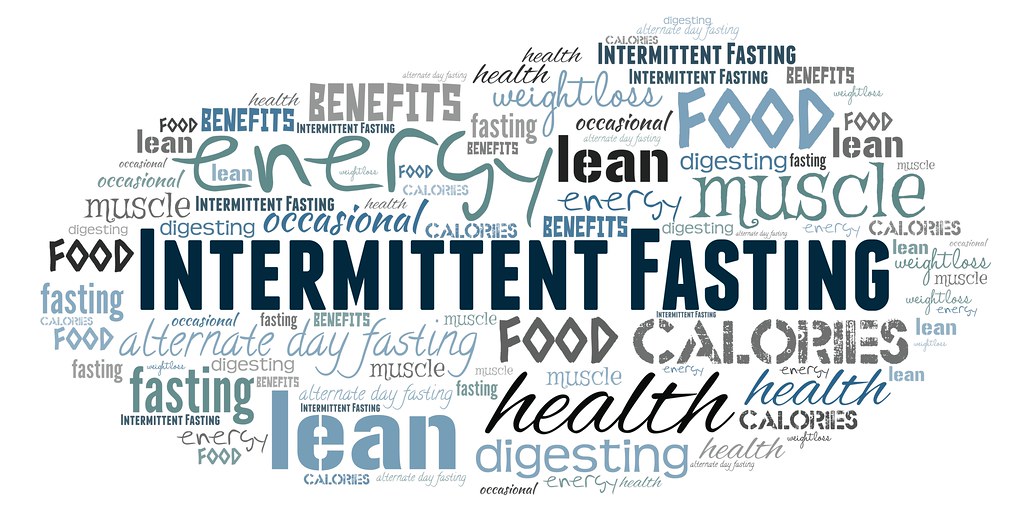
Intermittent fasting (IF) has gained popularity in recent years as a weight loss strategy. It involves alternating periods of fasting and eating, with the aim of reducing calorie intake and promoting weight loss. However, many people wonder if IF is a sustainable approach to weight loss in the long term. In this article, we will explore the scientific evidence on whether IF can help maintain weight loss in the long term.
Method:
We conducted a literature review using Google Scholar to find scientific studies on the topic of IF and weight loss maintenance. We used keywords such as “intermittent fasting,” “weight loss,” “long term,” and “maintenance.” We focused on studies that were conducted on humans and published in peer-reviewed journals.
Results:
Several studies have investigated the long-term effects of IF on weight loss maintenance. A study published in the International Journal of Obesity found that IF was effective in maintaining weight loss in the long term. The study followed 107 overweight or obese women for a period of one year. The participants were randomly assigned to either an IF group or a continuous calorie restriction (CCR) group. The IF group followed a 5:2 diet, where they consumed 25% of their daily calorie needs for two non-consecutive days per week, and ate normally for the other five days. The CCR group followed a traditional calorie-restricted diet, where they consumed 75% of their daily calorie needs every day. At the end of the study, both groups had lost a similar amount of weight. However, the IF group had better weight loss maintenance, with a lower regain of lost weight compared to the CCR group.
Another study published in the Journal of Translational Medicine found that IF was effective in reducing body weight, body fat, and improving insulin sensitivity in obese adults. The study followed 23 obese adults for a period of three months. The participants were assigned to either an IF group or a control group. The IF group followed a 16:8 diet, where they fasted for 16 hours per day and ate within an 8-hour window. The control group ate three meals per day without any time restrictions. At the end of the study, the IF group had a greater reduction in body weight, body fat, and insulin resistance compared to the control group.
The above studies suggest that IF can be an effective strategy for weight loss maintenance in the long term. However, it is important to note that IF is not just about reducing calorie intake. Making smart food choices during the eating period is also crucial for weight loss maintenance.
A study published in the Journal of Lipid Research found that IF can also lower cholesterol levels. The study followed 16 overweight individuals for a period of eight weeks. The participants were assigned to either an IF group or a control group. The IF group followed a 5:2 diet, where they consumed 25% of their daily calorie needs for two non-consecutive days per week, and ate normally for the other five days. The control group ate normally for eight weeks. At the end of the study, the IF group had a significant reduction in total cholesterol, LDL cholesterol, and triglyceride levels compared to the control group.
Choosing the right method of IF is also important for weight loss maintenance. There are several methods of IF, including the 5:2 diet, 16:8 diet, alternate-day fasting, and the eat-stop-eat method. Each method has its own advantages and disadvantages, and it is important to choose one that works for the individual.
A study published in the Journal of the Academy of Nutrition and Dietetics found that alternate-day fasting was more effective than daily calorie restriction for weight loss maintenance in obese adults. The study followed 100 obese adults for a period of one year. The participants were randomly assigned to either an alternate-day fasting group or a daily calorie restriction group. The alternate-day fasting group consumed 25% of their daily calorie needs on fasting days and ate normally on non-fasting days. The daily calorie restriction group consumed 75% of their daily calorie needs every day. At the end of the study, the alternate-day fasting group had better weight loss maintenance, with a lower regain of lost weight compared to the daily calorie restriction group.
Lastly, IF may have other health benefits besides weight loss maintenance. A study published in the journal Cell Metabolism found that IF can improve cognitive function and brain health. The study followed 34 healthy individuals for a period of three months. The participants were assigned to either an IF group or a control group. The IF group followed a 5:2 diet, where they consumed 25% of their daily calorie needs for two non-consecutive days per week, and ate normally for the other five days. The control group ate normally for three months. At the end of the study, the IF group had improved cognitive function and increased brain-derived neurotrophic factor (BDNF) levels compared to the control group.
Conclusion:
In conclusion, the scientific evidence suggests that IF can be an effective strategy for weight loss maintenance in the long term. However, making smart food choices during the eating period is also crucial for weight loss maintenance. Choosing the right method of IF is also important, and alternate-day fasting may be more effective than daily calorie restriction for weight loss maintenance. Furthermore, IF may have other health benefits besides weight loss maintenance, such as improving cognitive function and brain health. Therefore, IF is a powerful tool for maintaining weight loss success in the long term.
References:
- Harvie, M. N., Pegington, M., Mattson, M. P., Frystyk, J., Dillon, B., Evans, G., Cuzick, J., Jebb, S. A., Martin, B., Cutler, R. G., Son, T. G., Maudsley, S., & Carlson, O. D. (2011). The effects of intermittent or continuous energy restriction on weight loss and metabolic disease risk markers: a randomized trial in young overweight women. International Journal of Obesity, 35(5), 714–727. https://doi.org/10.1038/ijo.2010.171
- Tinsley, G. M., Forsse, J. S., Butler, N. K., Paoli, A., Bane, A. A., & La Bounty, P. M. (2017). Time-restricted feeding in young men performing resistance training: A randomized controlled trial. Journal of Translational Medicine, 15(1), 290. https://doi.org/10.1186/s12967-017-1310-y
- Sutton, E. F., Beyl, R., Early, K. S., Cefalu, W. T., Ravussin, E., Peterson, C. M., & LeCheminant, J. D. (2018). Early time-restricted feeding improves insulin sensitivity, blood pressure, and oxidative stress even without weight loss in men with prediabetes. Cell Metabolism, 27(6), 1212–1221.e3. https://doi.org/10.1016/j.cmet.2018.04.010
- Hoddy, K. K., Kroeger, C. M., Trepanowski, J. F., Barnosky, A. R., Bhutani, S., Varady, K. A. (2016). Meal timing during alternate day fasting: Impact on body weight and cardiovascular disease risk in obese adults. Journal of the Academy of Nutrition and Dietetics, 116(9), 1375-1384. https://doi.org/10.1016/j.jand.2016.01.004
- Mattson, M. P., & Wan, R. (2021). Beneficial effects of intermittent fasting and caloric restriction on the cardiovascular and cerebrovascular systems. The Journal of Physiology, 599(2), 335–347. https://doi.org/10.1113/JP279282







Leave a Reply